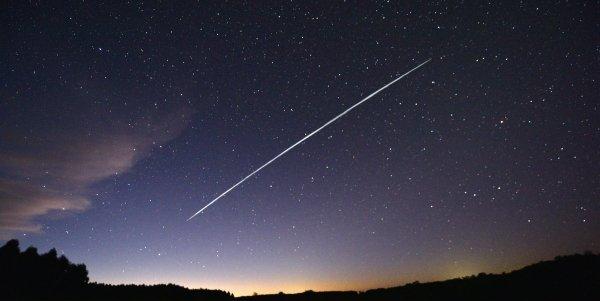On February 3, 2022, EST, SpaceX's Falcon 9 launch vehicle successfully lifted off from the Nidi Space Center in Florida, usa, and the next day, 40 of the 49 starlink satellites carried by the rocket failed to achieve successful orbit, and they swept across the night sky like meteors.

Will these 40 satellites hit the ground?
In general, satellites will be torn apart in the violent process of re-entry into the atmosphere, in fact, these 40 satellites have burned out in the atmosphere, and there is no threat to ground buildings and humans.
However, not all satellites will be reduced to ashes in the atmosphere, and sometimes some relatively large fragments will remain, such as satellite fuel tanks, which are about the size of a small car.
The world has launched more than 6,000 satellites into space, each of which continues to fly in orbit after completing its mission, which becomes space junk. As space junk continues to increase, so does the probability of hitting other satellites and space stations. Just last year, the Starlink satellite of space X of the United States approached the Chinese space station twice dangerously, thanks to the emergency avoidance measures taken by the Chinese space station.
In order to avoid decommissioned satellites from hitting new satellites and space stations, the United Nations Convention stipulates that satellites with an orbital altitude of less than 2,000 kilometers must be destroyed within 25 years of the termination of the mission. As a result, the satellite will be lowered in altitude before ending its mission, and then pulled back to Earth by gravity.
Since so many decommissioned satellites have been pulled back to Earth, a certain amount of debris must have fallen into the earth's surface after passing through the atmosphere, but why have we never seen these debris smash the streets, smash through the roofs, or even fall directly on our heads?
Because in most cases, experts on space missions will plan the route for the decommissioned satellite to fall to Earth — the experts will push the decommissioned satellite into a controllable orbit, calculate the amount of fuel left, and ensure that the satellite is located just over the remote ocean when the fuel is burned out, and eventually crash into the remote ocean.
But this is not foolproof, there is a very small probability that the satellite will malfunction and then lose control, and finally can only wait for its natural fall, which means that we do not know where it will eventually fall.
Although 70% of the earth's area is oceanic and the vast majority of land is sparsely populated, the probability of "Roentgen" hitting people is still 1/2000, and the probability of hitting a particular person is 1 in 13 trillion.
Shortly after Röntgen, satellites had a criterion that the probability of hitting ground personnel when falling to Earth dropped to less than one in 10,000. According to the current total population of about 8 billion people in the world, the probability of hitting a particular person is one in eighty trillion, while the probability of each person on the mainland dying in a car accident every year is one in ten thousand, so the probability of being hit by debris from decommissioned satellites is minimal.
Fortunately, no one has ever been killed or injured, and the only American in history who was nearly hit by satellite debris was an American named Lottie Williams, who was grazed on the shoulder by debris from the return of a Delta-2 rocket stage II back to Earth while with friends in 1997. But it was only slightly rubbed, and it was not injured, which was a shock. If you hit your head a little further, you will basically die.
Lottie Williams, who was almost hit by satellite debris
We don't have to worry too much in our lives, after all, the probability of being hit is enough for you to win the first prize of the two-color ball 4.5 million times.